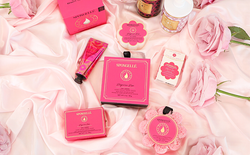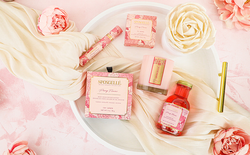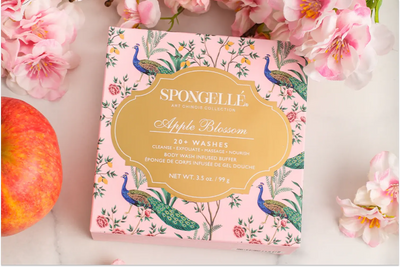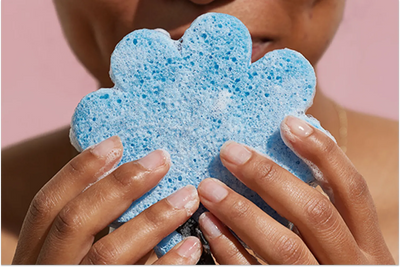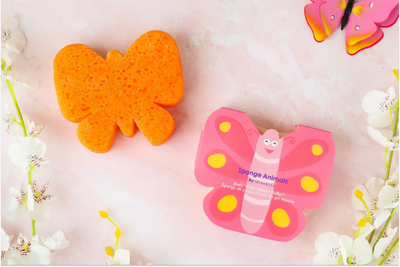Moisturizing your skin on a regular basis can be the key to achieving healthy, smooth skin. However, knowing when and how often you should be moisturizing can be confusing. When you give your skin what it needs, it will thank you.
People's skin types vary, and understanding your personal skin needs is important to implement a skincare routine. No matter what type of skin you have, it's going to need moisturizer. Your skin can go through a lot in a day, and protecting it is essential.
We are going to go over how often you need to be moisturizing and the signs your skin is dehydrated. You will also learn about the hydration needs for each skin type.
Your Skin and Moisture
Your skin needs proper hydration to look healthy and soft. Your body helps you out naturally by producing oils to protect and hydrate your skin. However, not everyone produces the perfect amount of oil to moisturize their entire bodies.
The environment you're in can also impact your skin's natural barrier. If you are in the sun a lot or cold temperatures, skin can dry out quickly. You've probably noticed as soon as winter comes, you're reaching for the moisturizer more. Your lips and hands usually show signs of dryness first, but your whole body may get drier.
If you find it hard to keep your hands moisturized, try having a hand lotion nearby to use more frequently. You can keep it on your desk or in your car, so it’s easily accessible. Spongellé’s hand cream will help soothe, nourish and hydrate your hands and cuticles.
Certain areas of your body have more sensitive skin, like your face, neck, and chest. The skin in these areas has a higher cell turnover rate than others. These sensitive spots are more susceptible to dryness and other issues because of the regular loss of skin cells. When you moisturize, you're giving your body an extra boost to help it heal and stay healthy.
If you don't moisturize your body and your skin's natural barrier is weak, you may experience skin issues. Generally, the first signs are scaly-looking skin, redness, and irritation. If you're skipping moisturizer and you're prone to inflammation, acne, or rosacea, it could get worse.
You can also develop wrinkles more quickly if you're skin isn't properly hydrated. Dry skin tends to be thinner, making it easier for creases to form. Moisturizing can also help you reduce the appearance of wrinkles and fine lines. The reasons to moisturize are endless!
How Often Should You Moisturize?
The simplest answer to when you should moisturize is when your skin needs it. However, you don't want to wait until your skin is completely desperate for hydration to moisturize. Once you start paying attention to your skin, you'll get a good idea of how long you can go before your skin is dry.
Most people need to moisturize at least once a day. When you get out of a hot shower is one of the best times to reach for lotion or cream. The hot water can actually dehydrate your skin, and moisturizing immediately after can save your skin.
Try Spongellé's Freesia Pear Body Lotion, which has the perfect combination of shea butter, argan oil, avocado oil, and vitamin E. The formulation of this moisturizer will feel like your skin has gone through a pampering treatment. It is also vegan-friendly, cruelty-free, and paraben-free.
People with dry skin will likely need to moisturize at least twice a day. Getting in the habit of applying a moisturizer in the morning and in the evening can be the best solution. However, if you find your skin getting dry in the middle of the day, don't shy away from grabbing your lotion.
While it's easy to tell you to need hydration when your skin is dry and cracked, you should aim to prevent this from occurring. When you're maintaining proper skin care, you are keeping it moisturized on a consistent basis so that it never becomes dry in the first place.
You may be living like lotion is there to be used as a reaction to dry skin. Instead, you should use it to prevent your skin from drying out. By keeping your skin hydrated, you will avoid developing skin issues.
Besides moisturizing during your daily routine, you also want to protect yourself when you know you're going to be exposing your skin to certain stressors. For example, if you're going to be outside in the sun when it's cold and windy, the water in your skin can be stripped quickly. By prepping your skin with extra hydration beforehand, you will keep your skin healthy.
Skin Types and Moisturizing
In simple terms, moisturizers help you retain water in your skin's outer layer. Water-based lotions, creams, and serums make up the majority of moisturizers. Other ingredients like avocado oil and Macadamia oil can help give you smoother skin.
You may have to test out a few different moisturizers to find one that's the best for you. Some lotions can leave a residue, while others you can't feel once they absorb into your skin. There are also lotions that are more lightweight than creams. You need to take your skin type into consideration.
Normal Skin
Normal skin isn't too oily or too dry. Maintaining normal skin is all about keeping the balance it already has. Try a lotion that's water-based with a nongreasy feel.
Dry Skin
Dry skin can be flaky, itchy, or rough. You may need a thicker moisturizer with elements that help lock in the moisture to restore your skin. If you still feel dry after applying a lotion, look for one lactic acid or petroleum jelly.
These ingredients can last longer on your skin than other lotions. They are more effective at keeping the water in your skin. Sometimes these moisturizers can feel too greasy or oily during the day but can be a good option at night.
Oily Skin
If your skin feels greasy, looks shiny, and is more prone to breaking out, you may have oily skin. People with oily skin may think they don't need moisturizer. However, there are times that even oily skin needs an extra boost of hydration.
When your skin's natural oils have been removed either from showering or sun exposure, you need moisturizer. Water-based lotions that aren't as heavy are easy to apply. If you have acne, stay away from products that include things like petroleum jelly since they can cause a breakout.
Combination Skin
Combination skin has dry and oily patches at the same time. You may experience greasiness in your T-zone area, but be drier on your cheeks. A medium-weight lotion is a good option for combination skin.
You may need to apply a mild moisturizer to your face and a thicker moisturizer to your arms and legs. You have to look at where your skin is drier and apply the right moisturizer for the right areas.
Sensitive Skin
When you have sensitive skin, you can easily experience redness, itching, and even rashes. You'll want a lotion with calming elements that won't aggravate your skin.
It may take some trial and error to figure out what ingredients your skin likes and the ones you need to avoid. No matter what you choose, stay away from lotions that include acids since they are often the culprit to irritation.
Mature Skin
When you get older, your skin matures. This skin is generally thinner, drier, and has less elastic. It is also less capable of protecting you from damage. You can look for creams or lotions made with retinoids, antioxidants, or other ingredients that help mature skin look healthy.
Moisturizing Tips To Keep in Mind
There are some moisturizing tips you should keep in mind when it comes to your skincare routine.
Sun Protection
Even when using a regular moisturizer, you also want to apply sunscreen every day. If you're going to be in the sun for an extended period of time, remember to reapply every two hours. The sun can dehydrate your skin fast and have damaging effects. You can mix sunscreen with your daily moisturizer.
Using Creams and Oils
Stay away from applying heavy creams and oils to your face unless you are really dry. These products can end up clogging your pores. Instead, use thicker moisturizers on your legs, hands, and feet since they tend to be drier.
If you're looking for a body lotion, try Spongellé's Moon Flower Body Soufflé. This whipped body soufflé has a combination of shea butter, nourishing vitamin E, and a hint of shimmer that will leave your skin with an effortless glow.
Apply Moisturizer Last
Apply medication creams before moisturizing in your skincare routine. Allow at least 30 minutes for the medication to absorb into your skin completely before applying moisturizer. You can look at your medication for more specific instructions.
In Summary
You should try to moisturize your skin at least once a day to keep it looking healthy and smooth. Pay attention to your skin type and its unique needs so that you never dry out. Spongellé products can make moisturizing feel like a luxurious skin treatment you can do every day!
Sources:
An Update of the Defensive Barrier Function of Skin | NCBI


